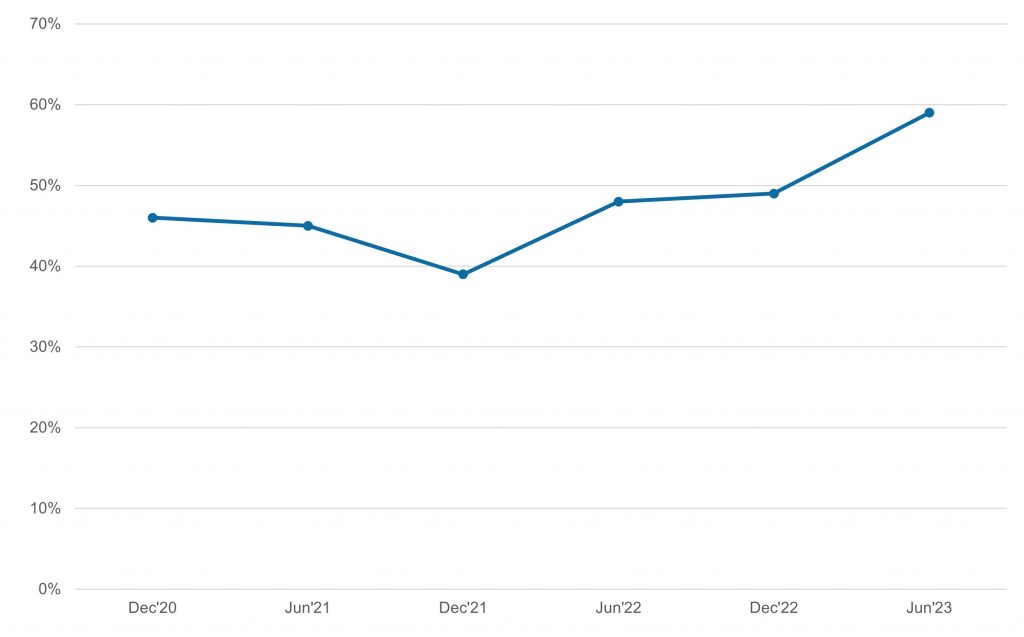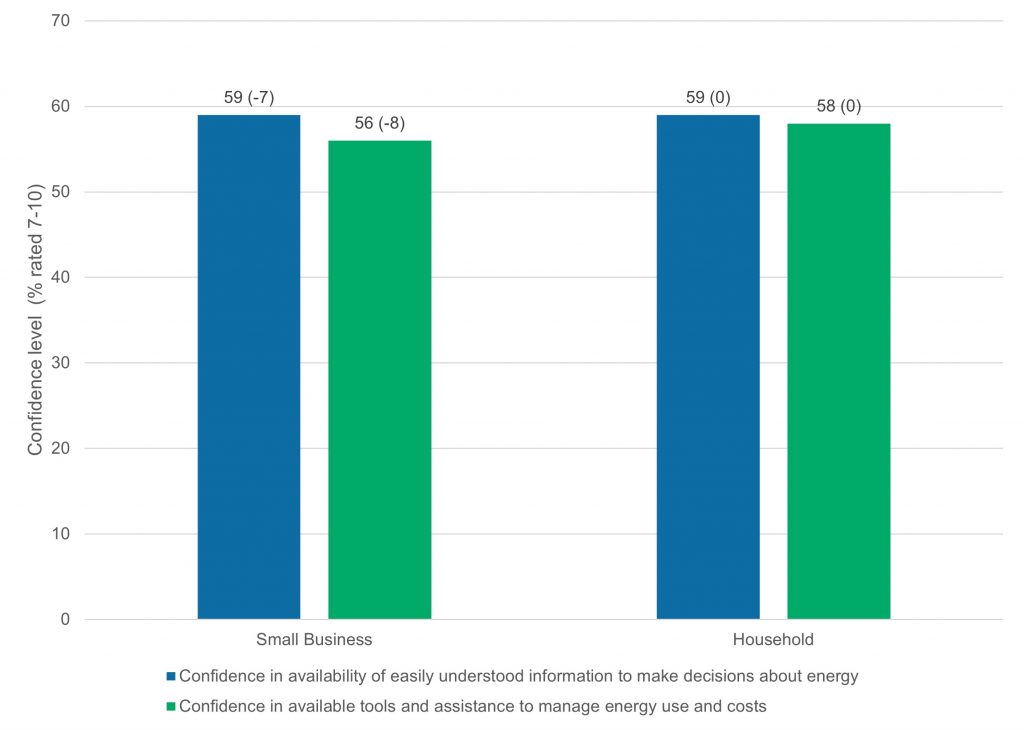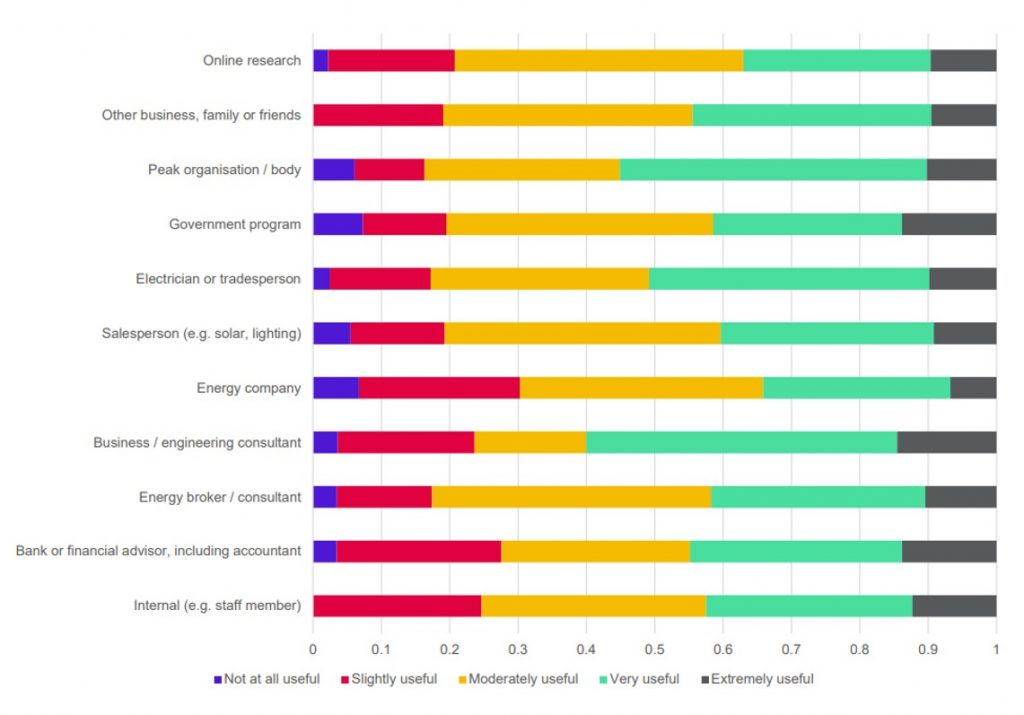The cost of living has dominated news cycles in recent months. It has defined election campaigns and underpinned the recent Commonwealth Budget. Prices have gone up in all areas of consumer expenditure, including energy, where double digit price increases are sending power bills soaring. In response, we’ve heard plenty of noise about the steps households can take to alleviate the pressure of rising electricity prices.
But what about small business owners? The cost of doing business is rising, small businesses are also feeling the squeeze of soaring mortgages and rents, and yet few people are discussing what can be done to help.
For many small business owners, how they access and when they use energy is a complicated story. The amount of energy used varies enormously and can be considerably higher than most households, especially for businesses such as laundromats, hairdressers, or those using large-scale cold storage. Similarly, access to affordable energy can vary depending on location and whether they can lower energy costs through measures such as energy efficient appliances or a rooftop solar system. Their ability to take advantage of periods of cheaper energy is also limited by operating hours and the specific tools and machines they operate. And with the huge diversity of businesses, when accessing information and help on how to minimise energy costs, advice is only helpful if it is tailored to their individual circumstances.
Within this environment, small businesses can’t help but have energy front of mind.
Our Energy Consumer Sentiment Survey is the most comprehensive ongoing research study of the attitudes and activity of residential and small business energy consumers in Australia. The most recent June results tell us that more businesses currently consider electricity as one of their biggest overheads compared to the same time last year. This is supported by findings from Business NSW’s survey (PDF, 3.08MB) which found that over 40% of businesses report electricity as one of their biggest costs and over 20% report the same for gas.
This is amplified by the rising cost of both electricity and gas. The Australian Energy Regulator has announced that electricity bills for small businesses on standing offers will increase by up to 29% in NSW, South Australia and South-East Queensland come 1 July. In Victoria, the Essential Services Commission has announced they will increase by on average 25%.
Small businesses don’t always know where to go for help
Small businesses are already struggling to absorb the current wave of rising energy prices, let alone those to come after 1 July. Our ECSS tells us that 59% of small businesses are more worried about their ability to pay their electricity bills now than they were a year earlier, up 11% compared to our June 2022 findings (Figure One). 63% of small businesses are concerned that electricity and gas will become unaffordable for them in the next three years, up from 58% last year. The number of businesses who believe they are receiving value for money for energy is also declining, at 60% for electricity (down 16% from 12 months ago) and 70% for gas (down 6%). This comes as we see an increasing number of businesses using personal funds, like credit cards, to pay their business energy bills.

Figure One: Percentage of small businesses who said they are more concerned about their ability to pay their electricity bills than a year ago
However, despite energy costs being one of the top concerns for small businesses, many lack the knowledge, expertise or time it takes to research or put into practice the actions needed to manage energy usage and costs. While a household can choose to use their dishwasher when electricity is cheapest, a restaurant which operates during the evening peak has little option but to run it during one of the most expensive periods.
Despite these constraints, small businesses (as well as many advisors and industry associations) are still seeking out ways to reduce energy costs. Business NSW’s report (PDF, 3.08MB) found that 60% of businesses had sought advice on how to reduce their energy bill. Our survey also shows that the number of businesses that have contacted their retailer for help managing their energy bill has increased by 10% in the past year to 36%. A further 16% expect to contact their retailer for help in the near future.
However, businesses are less likely to think there is specific help available for them, which might explain the large portion that have not sought advice. Our survey asks if consumers believe there is enough easily understood information available to them to make decisions about energy. While for households this has remained steady over the past year, the number of small businesses who believe there is enough information has declined 7% to 59%. It’s the same story when we ask whether consumers have access to the tools and assistance needed to help them manage their energy use and costs. Households have remained steady while small business has decreased by 8% to 56% (Figure Two).

Figure Two: Percentage of consumers who feel confident in available information and comparison to June 2022There are several reasons this might be the case.
The information may be inconsistent, not be relatable to their type of business, or not found in a location where they seek advice.
According to our research, small businesses that are struggling to pay their energy bill often think of their energy retailer as their first point of call. However, of the businesses in our survey who said they had contacted their retailer for help, more than a third said they did not receive useful assistance. Business NSW’s report (PDF, 3.08MB) revealed that the channels most commonly used to access information, such as retailers, were also the least helpful. On the flip side, businesses reported that the channels that were used least, such as business consultants or peak bodies, provided the most useful advice (Figure Three).

Figure Three: Usefulness of channels used by businesses to access advice to reduce energy billsSource: Business NSW Unfinished Business report (PDF, 3.08MB)
Small businesses need support to manage energy costs
Passing on higher energy costs to their customers, who are dealing with their own cost of living pressures, is not something many small businesses want to do, especially when they are competing with larger organisations who can often negotiate cheaper input costs. But continued rises to energy bills means that absorbing them into operating costs is becoming increasingly difficult. Small businesses urgently need to know how they can minimise energy costs and where to go for help when they need it. For all consumers, there is a need for information that is trusted, clear, consistent, and tailored to their needs. For small businesses, that advice should be delivered through trusted pathways like industry associations or advisors.
Improving information and communication is not the end goal in and of itself. Even the most switched-on business owner will find it hard to shield themself from the impact of rising prices. The Commonwealth’s announcement of up to $650 for eligible small businesses in the May Budget offers some welcome short-term relief. This needs to be part of a long-term conversation about how small businesses can access more affordable energy.
We’re pleased to see the Commonwealth improving energy efficiency and supporting the transition from gas to electrification through its Small Business Energy Incentive. Co-design presents a golden opportunity to engage and enable small businesses and incorporate their wants and needs in the policy process.
We’re currently seeing progress in the way small businesses are being included in the journey to mitigate rising energy costs and transition away from fossil fuels. In order for this to become widespread, the tools and support must be readily available and designed with the diverse needs of small businesses at their heart. Only then can the full potential of small businesses to help transform our energy system be unlocked.
